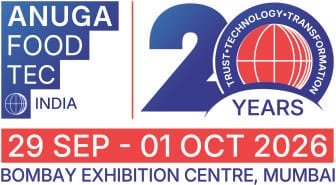The Plastic Waste Management Amendment Rules, 2021, announced in August, state that 20 identified single-use plastic products (SUPs) will be phased out by next year.
Come July 2022, the Indian government’s ban on single-use plastics (SUPs) will come into force. That’s what a recent announcement by the Union Ministry of Environment, Forest and Climate Change (MoEFCC) states. The Plastic Waste Management Amendment Rules, 2021, announced in August, state that 20 identified SUPs will be phased out by next year.
The announcement has brought with it several questions. The ‘Report on Single-Use Plastics’, worked on by an expert committee constituted by the Department of Chemicals and Petrochemicals (DCPC), has categorised plastic products based on their environmental impact and utility – those found to have the lowest utility and highest environmental impact are recommended for a phase-out.
These include thin carry bags (less than 50 microns); non-woven carry bags and covers (less than 80 gsm and 320 microns); small wrapping/ packing films; straws/ stirrers; cutlery such as foam cups, bowls; earbuds with plastic sticks; cigarette filters; small plastic bottles; plastic banners; among other products.
The report also mentions that on examining bans and other restrictions on plastic products issued by various State governments and Union Territories, the expert committee ‘noted that the guidelines lack uniformity and vary widely in different parts of the country’.
These identified single-use plastic products (SUPs) include thin carry bags (less than 50 microns); non-woven carry bags and covers (less than 80 gsm and 320 microns); small wrapping/ packing films; straws/ stirrers; cutlery such as foam cups, bowls; earbuds with plastic sticks; cigarette filters; small plastic bottles; plastic banners; among other products.
The list highlighting the environmental adverse impact score of SUPs makes it evident that these are products being churned out by small and medium manufacturers. Larger corporations that mass-produced everything from furniture and bags to multi-layered packaging and bottles are missing.
Minderoo Foundation’s ‘Plastic Waste-Makers Index’, released earlier this year, reveals the companies that produce 90% of all SPU waste generated globally. The list includes Reliance Industries, GAIL India, Indian Oil Corporation, and Haldia Petrochemicals from India.
The Plastic Waste Management Rules, 2016 proposed that these be collected and managed environmentally through extended producer responsibility (EPR) of the producer, importer, and brand owner (PIBO). ‘Five years later, the EPR for plastic waste management remains only on paper, due to non-compliance by PIBOs and weak enforcement by authorities,’ states Down to Earth. ‘The Ministry’s assumption that the PIBOs will start complying now is puzzling.’o
According to the Federation of Indian Chamber of Commerce and Industry (FICCI), the plastics recycling industry in India employs over 1.6 million people and has more than 7,500 recycling units. It is a known fact that recycling has been managed by extremely small players, who employ elementary waste segregation processes and lack scientific know-how on waste collection, segregation, and disposal.
















